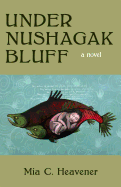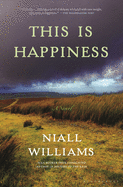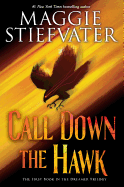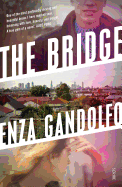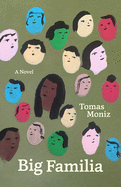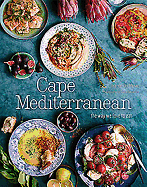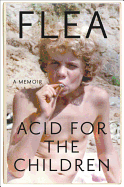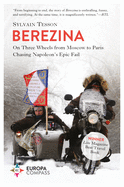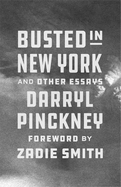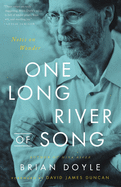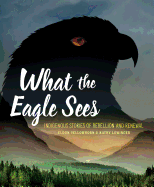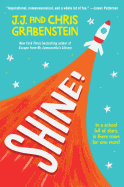Friday, December 20, 2019
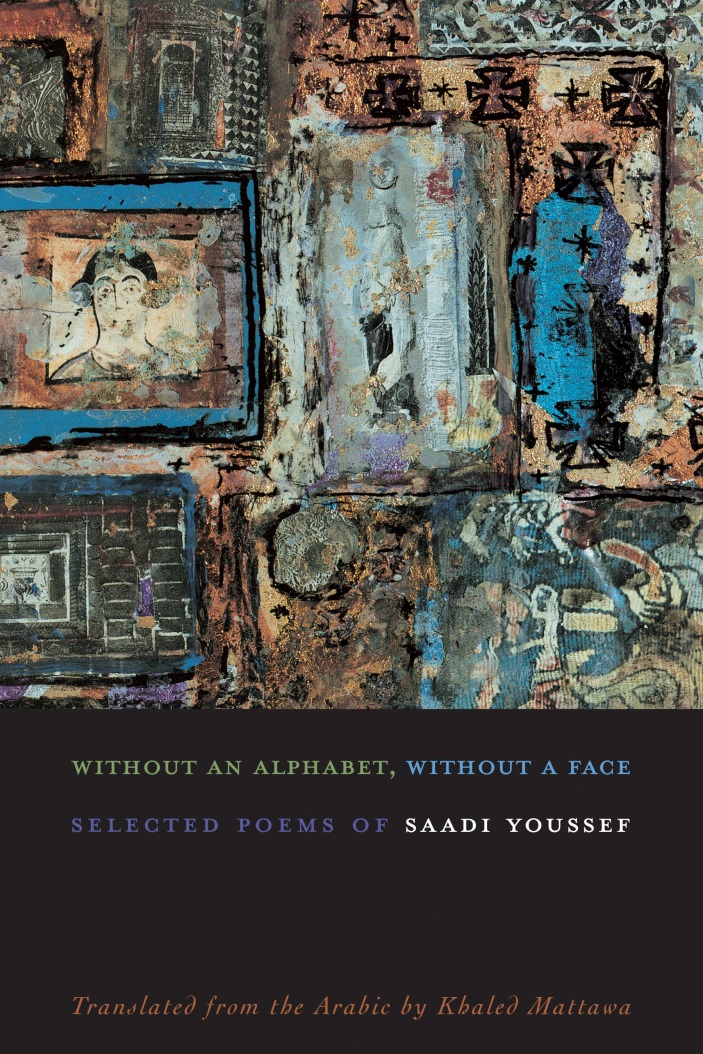 A recent visit to central Iraq's magnificent holy shrines inspired me to explore that country's recent history from the perspective of the poets and writers who call it home. Born near Basra, Saadi Youssef is one of the world's greatest living artists writing in Arabic. He fled his homeland under political duress in the 1970s, a trauma that inspired heart-wrenching poetry. Without an Alphabet, Without a Name (Graywolf Press, $16) is a shimmering collection of Youssef's work composed while he moved through the Middle East to Africa and then Europe in a series of forced departures. He celebrates the essential joys of Iraqi life while realizing that the vibrant country of his memory no longer exists.
A recent visit to central Iraq's magnificent holy shrines inspired me to explore that country's recent history from the perspective of the poets and writers who call it home. Born near Basra, Saadi Youssef is one of the world's greatest living artists writing in Arabic. He fled his homeland under political duress in the 1970s, a trauma that inspired heart-wrenching poetry. Without an Alphabet, Without a Name (Graywolf Press, $16) is a shimmering collection of Youssef's work composed while he moved through the Middle East to Africa and then Europe in a series of forced departures. He celebrates the essential joys of Iraqi life while realizing that the vibrant country of his memory no longer exists.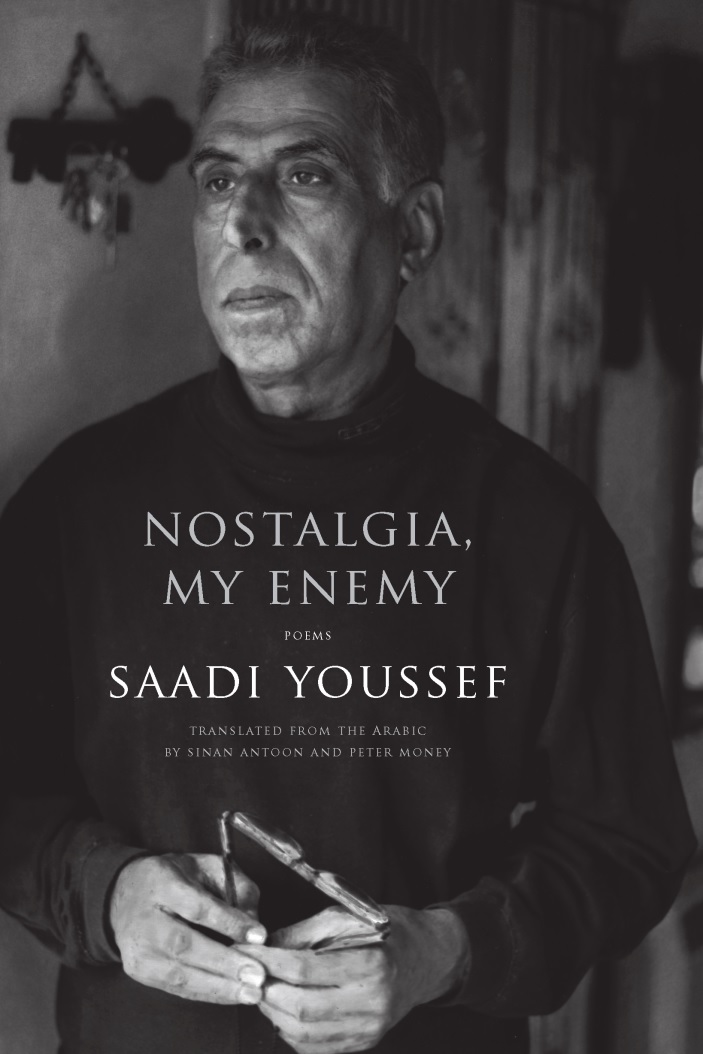 The once-abundant date palm trees of Youssef's childhood feature in Nostalgia, My Enemy (Graywolf Press, $15), a mesmerizing blend of meditative pieces and sharply observant poems recalling the beauty and destruction of modern Iraq.
The once-abundant date palm trees of Youssef's childhood feature in Nostalgia, My Enemy (Graywolf Press, $15), a mesmerizing blend of meditative pieces and sharply observant poems recalling the beauty and destruction of modern Iraq.
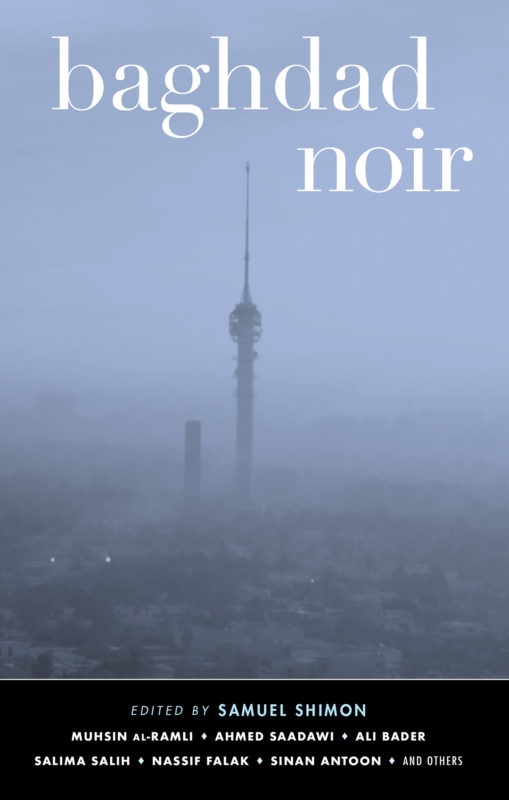 Baghdad Noir, edited by Samuel Shimon as part of the Akashic Noir series ($15.95), is an anthology of crime stories exploring contemporary life in the capital city, and the effect of Sadaam Hussein's regime, U.N. sanctions, the fracturing of Iraqi society during U.S. occupation and the war waged by ISIS. In true noir fashion, these stories are tantalizing whodunnits that reveal the daily struggles of regular people against the surreal backdrop of kidnappings and car bombs.
Baghdad Noir, edited by Samuel Shimon as part of the Akashic Noir series ($15.95), is an anthology of crime stories exploring contemporary life in the capital city, and the effect of Sadaam Hussein's regime, U.N. sanctions, the fracturing of Iraqi society during U.S. occupation and the war waged by ISIS. In true noir fashion, these stories are tantalizing whodunnits that reveal the daily struggles of regular people against the surreal backdrop of kidnappings and car bombs.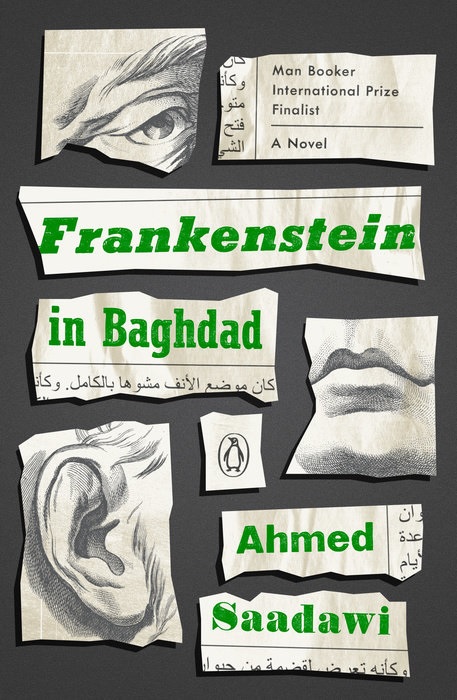 The horrors of the Iraq war, as endured by Baghdad's residents, are confronted head-on in Frankenstein in Baghdad by master storyteller Ahmed Saadawi (Penguin, $17). It's a heady blend of thriller and dark humor, a story that confronts the staggering monster representing man's desire for revenge. --Shahina Piyarali, writer and reviewer
The horrors of the Iraq war, as endured by Baghdad's residents, are confronted head-on in Frankenstein in Baghdad by master storyteller Ahmed Saadawi (Penguin, $17). It's a heady blend of thriller and dark humor, a story that confronts the staggering monster representing man's desire for revenge. --Shahina Piyarali, writer and reviewer
Under Nushagak Bluff
by Mia C. Heavener
In this saga about matrilineal love and discord, Mia C. Heavener depicts three generations of Yup'ik women and the divergent ways each endures the increasing outside influence on their pre-state Alaskan village.
Anne Girl grew up in Nushagak "with mud in her fingernails and tundra leaves in her hair." Restless to her bones, she keeps busy, catching salmon with her mother to prepare for winter. John Nelson is an outsider--a Norwegian who can't convince the locals to let him work--and Anne Girl is immediately drawn to him. After her mother dies, Anne Girl marries John, but his constant presence suffocates her. Then John becomes a pilot, and Anne Girl abhors awaiting his returns, busying herself with smoking fish and teaching her daughter, Ellen, everything she learned from her mother. But Ellen doesn't feel acknowledged by her mother. She thinks Anne Girl would let her drown to save a net of salmon.
Anne Girl starts to fear she's failing Ellen--that when the rapidly commercializing village abandons its traditional ways of life, Ellen will be left clinging to them just as Anne Girl is. She moves out, and Ellen's left to come of age in a settlement divided between the old and the new. But the more she roots herself in Nushagak--to her friends, to the fisherman and to the woman who becomes her second mother--the more Ellen comes to believe she must leave. With a diverse community devoted to supporting one another and peppered with Yup'ik legends, Under Nushagak Bluff by Heavener celebrates indigenous livelihood in an enthralling debut about identity in its varied forms, and the ways they battle and sustain one another. --Samantha Zaboski, freelance reviewer and editor
Discover: This captivating debut novel follows generations of native Alaskan women through their small fishing village's growth, exploring the effect of storytelling, culture and community on identity.
This Is Happiness
by Niall Williams
In his first novel since the Man Booker Prize-longlisted History of the Rain, Irish writer Niall Williams returns to western Ireland with a coming-of-age tale about the inexorable march of progress and the grip the past nevertheless maintains on the heart.
The villagers and the rain of rural Faha, County Clare, "had been married so long they no longer took notice of each other," but one spring in the late 1950s, the rain suddenly stops for a season that will forever shape the life of Noel "Noe" Crowe. His father sends him from his home in Dublin to stay with his grandparents in Faha, hoping to straighten out the 17-year-old after he leaves the seminary. Most importantly for the tiny village, the Electricity Supply Board comes to town, bringing the promise of jobs, the joy and threat of modernization, and Christy McMahon, who hires Noe to assist him in signing up the Fahaeans for electrical service.
Over the course of the sunny spell, Noe drinks more than his share of pints, has a calamitous accident and falls for all three of the village doctor's daughters. His adventures and misadventures help him take his first shaky steps into adulthood. Told by an almost 80-year-old Noe, the narrative pulses with an old man's grudging fondness for a younger self who was more foolish but also purer of heart. This Is Happiness is resplendent with metaphor. It speaks to the vital role friendship and a tight-knit community can play in strengthening the human spirit. --Jaclyn Fulwood, blogger at Infinite Reads
Discover: Niall Williams returns to the setting of History of the Rain in this coming-of-age novel set against the backdrop of electricity's arrival in rural Ireland.
The Bridge
by Enza Gandolfo
On October 15, 1970, a span of the West Gate Bridge in Melbourne collapsed during construction, killing 35 workers and sucking countless souls into the aftermath. Out of one of Australia's worst industrial accidents, Enza Gandolfo crafts a novel that imagines the long-term fallout as the 40th anniversary of the catastrophe approaches.
Newlywed Antonello was one of the survivors, an Italian immigrant trying to be "Australiani," working as a rigger high atop the structure. Nello lost friends and his father-figure foreman; he gained anger, depression and guilt--they had all known things weren't right with the bridge. In 2009, Nello is a grandfather with a lovely family. But he's just "partly human," unable to be the man he intended, emotionally blocked and haunted by persistent nightmares about falling: "There was no escaping the bridge."
Across town, single mother Mandy is struggling to get by with her 18-year-old daughter, Jo. Like Nello, Mandy sees signs of trouble but fails to speak out. The cost of staying silent is a tragedy that locks the two families together.
In The Bridge, Gandolfo tenderly explores the repercussions of trauma, providing a tribute to the men who built the bridge and their long-suffering families. Shortlisted for the 2019 Stella Prize, The Bridge is a gripping look at life through the prism of grief and blame. --Lauren O'Brien of Malcolm Avenue Review
Discover: A true Australian tragedy is revisited through the devastation wrought on several characters in the decades since.
Big Familia
by Tomas Moniz
For readers in search of a tautly streamlined, deeply resonating, contemporary family story, Big Familia by Tomas Moniz (Bellies and Buffalos) won't disappoint. In this short novel, Juan Gutiérrez is a longtime Berkeley resident, the amicably divorced father to high school senior Stella and a self-described Chicano--although his best friend tells him that Chicanx is more appropriate. Juan works from home, building websites. His apartment has stayed the same for almost two decades, while his neighborhood is replacing chain-link fences with reclaimed wooden ones and his local dive bar is morphing into a karaoke hot spot.
Recently, Juan's taken up biking over driving because he really enjoys the two wheels--not because his belly might be growing. He's not quite sure if his lover, Jared, for all his easy style and warm acceptance, is truly the one. Besides, Juan has his reliable regulars he sees Tuesdays and Thursdays down the street at Nicks. But when the oldest member of his drinking crew dies, Juan begins to realize that maybe, after all these years, he doesn't really know the people he's spending time with. Suddenly alone when Stella heads South for college, Juan's about to find out that the changes around him might mean he, too, will need to make a few adaptations and adjustments.
Without ignoring societal ills--racially charged police violence, incarceration bias, aggressive gentrification, generation gaps--Moniz creates a broadly diverse cast on the verge of transformation. Testing options, pushing past comfort zones and welcoming new bonds result in a big familia well worth getting to know. --Terry Hong, Smithsonian BookDragon
Discover: In Tomas Moniz's engaging novel, not-yet-40 single father Juan Gutiérrez seeks to reconfigure his life and reconnect with those around him amid substantial change.
Food & Wine
Cape Mediterranean
by Ilse van der Merwe
South African cooking encompasses a variety of food, to be expected from a large country with a vibrant indigenous history and influences from colonization and immigration. Cape Mediterranean, the first cookbook by Western Cape food blogger Ilse van der Merwe, focuses on food from the Mediterranean-like climate in her region, adding to the "thriving, contemporary multicultural South African foodscape."
More than 75 recipes cover breads, braises and soups, sweets and much more. Some recipes are simple, with easily sourced ingredients, and sound familiar to anyone who has cooked from Mediterranean cookbooks: Tagliatelle with Fresh Basil and Pesto, for example, or Roasted Tomato Soup with Garlic and Thyme. But van der Merwe also includes more elaborate dishes with a South African flair. Baked Cape Figs with Fynbos Honey and Gorgonzola, an appetizer, lists locally farmed purple figs rather than imported figs, and South African Blue Cheese. Enthusiastic cooks will enjoy searching out these ingredients in well-stocked grocery or specialty stores, but can substitute more common ingredients if necessary. Pork and Fennel Ragu with Tomato and Preserved Lemon riffs on the classic heavy Mediterranean ragu by using tomatoes rather than tomato paste and preserved lemons (recipe included), making "a fragrance that is unusual and inviting."
Cape Mediterranean has full-color pictures throughout, and lists ingredients in both U.S. standard and metric. The recipes are clearly written to ensure success the first time. Cooks looking to expand their repertoire of modern ethnic dishes will welcome this practical cookbook to their shelves. --Cindy Pauldine, bookseller, the river's end bookstore, Oswego, N.Y.
Discover: A South African blogger compiles her first cookbook of Mediterranean-influenced Western Cape dishes.
Biography & Memoir
Acid for the Children
by Flea
Best known as the bassist and a founding member of Red Hot Chili Peppers, Flea (born Michael Peter Balzary) has written an affecting, emotional and keenly self-aware memoir focusing on his first 20 years. Although Acid for the Children ends just when he and best friend Anthony Kiedis form their band (with Hillel Slovak and Jack Irons), Flea packed a lot of living into those first two decades. This 400-page memoir moves at a galloping pace.
Born in Australia and raised in Rye, N.Y., Flea and his sister were raised by their divorced mother, who was vivacious and smart but not maternal. "There is not one instance in my life where I can ever remember her holding or cuddling me," he writes. Pretty much left on his own to wander the streets, he writes, "My earliest memories are rooted in an underlying sense that something's wrong with me, that everyone else is clued into a group consciousness from which I'm excluded." At age 12, the family moves to California, where he discovers marijuana, cocaine and crystal meth. "For clarity's sake, I've never been a drug addict," he writes. "A wildly out of control and misguided experimenter, yes.... Experiments that yielded sadness, neurosis, and physical damage." He finds his calling and community in music. "Punk rock opened the door to a new way of thinking that applied to every facet of my life," he writes.
Flea's impressive memoir is filled with outrageous and rambunctious memories but told with style and introspection. Happily, it ends with the promise of a second volume. --Kevin Howell, independent reviewer and marketing consultant
Discover: Flea's memoir covers his first 20 years of sex, drugs and punk music, told with introspection and flair.
Camgirl: A Memoir
by Isa Mazzei
Revelatory and wild, Camgirl by Isa Mazzei portrays a woman's celebratory determination to discover herself. Mazzei always wanted attention. She led a protest over her school mascot at eight years old, cast spells on fellow 12-year-old girls during her Wiccan phase, and developed Isa's Rules for Seduction to become "Queen of Boys" in junior high. Mazzei loved breaking hearts and being hated--she even asked her mom to have "whore" written on her birthday cake. But the more she jumped from boy to boy and girl to girl through high school, then college, the more Mazzei hated sex, often turning to self-harm for being an "idiot," "disgusting," the "devil." Then a strip show sparked an epiphany: her love for seduction but not sex could be her career.
Mazzei became "Una," a cam girl broadcasting herself live online. During sexual shows, she read palms, practiced BDSM and made art, all while befriending regulars in her chat room who tipped her. Though she earned $15,000 in one month, Mazzei's discomfort with sex lurked. She regretted inviting fans to visit. She left an expo devastated when she couldn't stand participating with other naked girls. Admirably frank, Mazzei intimately details her struggle to understand why she didn't belong. She openly attributes her attention-seeking behavior to parenting bordering on abandonment. But faced with an alcoholic mother and bipolar father, Mazzei owned her eccentricities: "Without a sense of belonging even in my own family... I began to revel in the opportunities it presented." Mazzei took control of her life, always keeping her passion for whatever she did aflame--always searching for her calling. --Samantha Zaboski, freelance editor and reviewer
Discover: A spectacularly gripping memoir about a former cam girl's journey to regain control over her body, sexuality, life and identity through sex work.
History
Berezina: On Three Wheels from Paris to Moscow Chasing Napoleon's Epic Fail
by Sylvain Tesson, transl. by Katherine Gregor
Having once walked from Siberia to Calcutta and once lived six months alone on the remotest Russian taiga, the French travel writer Sylvain Tesson has made a remarkable career of spinning stunt-ish adventures into art. The Consolations of the Forest, his marvelous account of that half-year of Siberian solitude, won 2014's Dolman Best Travel Book Award. Berezina, the second of his books to be translated into English, also recounts a harrowing feat, with typically illuminating results.
In 2012, Tesson journeyed 2,500 miles tracing Napoleon's Grande Armée's 1812 retreat from Moscow to Paris, a historic debacle in which some 400,000 French soldiers were reduced to a tenth of that number, freezing to death and eating their own horses. Exactly 200 years later, Tesson and his hard-drinking, history-mad comrades also endure the relentless cold of a Russian winter, but the greatest danger they face is vehicular. That would be the unreliable Soviet-era motorcycles, complete with sidecars, in which they barrel through western Russia, Belarus, Poland, Lithuania and Germany. "Nothing will stop our Ural," Tesson declares. "Not even its brakes!"
Tesson's wit and urgent, restless philosophizing set the book surging along. This brisk volume moves much more quickly than the author's obstreperous motorbike. Roadside disasters, incisive character studies and sharply rendered accounts of cities, snow, hotels and rivers all abound, but the book's heart is in Tesson's efforts to comprehend the horrors of Napoleon's long retreat--and to make sense of how people, nations and Europe itself have changed. --Alan Scherstuhl, freelance writer and editor
Discover: On Russia's least reliable motorcycle, a French travel writer traces Napoleon's defeat.
Essays & Criticism
Busted in New York and Other Essays
by Darryl Pinckney
Novelist and essayist Darryl Pinckney has been a staple of New York's literary intellectual scene for decades. Busted in New York offers readers the first collection of Pinckney's nonfiction works. The essays included in this volume tackle George W. Bush's election, the Black Lives Matter movement and more. While the experience of reading essays like "In Ferguson" and "Dreams from Obama" may now feel retrospective, the works themselves, written from within these moments and others, represent illuminating slices of socio-cultural insight from recent history.
Pinckney's style is both lyrical and journalistic, erudite and lived-in. These snapshots of writing draw on the traditions of writers like Joan Didion, invoked by "Slouching Toward Washington," and James Baldwin, who exists as a patron saint of the whole collection but is given particular reverence in "Under the Spell of James Baldwin." Of particular note is the titular essay, "Busted in New York," which explores racial profiling and urban gentrification through Pinckney's arrest after smoking pot on the Lower East Side. In this essay, as in many others, readers can get lost in the intimate touch the author brings to the issues and historic tragedies that face our contemporary world. Pinckney ends "Beyond the Fringe," an essay documenting his Bush election reactions, with a statement that feels relevant today: "it was hard to believe that the country would recover soon from the defensiveness and bitterness that I'd observed--and felt." But it is in this act of recognizing fear that the collection finds its greatest strength. Pinckney manages, brilliantly, to contextualize fear, at once to acknowledge it and to put it in its place. --Alice Martin, freelance writer and editor
Discover: This capstone collection of Darryl Pinckney's essays reflects on past events, writers and traumas in order to shed light on a new path forward.
Religion
One Long River of Song: Notes on Wonder
by Brian Doyle
For someone who produced 13 works of nonfiction along with multiple volumes of fiction and poetry, Brian Doyle (Mink River; The Plover)--who died of brain cancer in May 2017 at age 60--never achieved a popular reception commensurate with his impressive productivity. But now, thanks to One Long River of Song: Notes on Wonder, a generous sampling of the longtime Portland magazine editor's dazzling essays, there's a renewed opportunity for more readers to discover the insight and humanity of his work.
Compiled by Doyle's longtime friend David James Duncan (The Brothers K) and two co-editors, One Long River of Song's more than 80 pieces resist easy categorization. Among Doyle's preoccupations were basketball, hawks, the Gaelic language, his father, otters, and the beauty of the Pacific Northwest region where he made his home, but there are few important aspects of life that aren't at least touched on here.
As David James Duncan explains in an opening appreciation of Doyle's work, his friend, a "born cultural Catholic who cheerfully observed the rites of his inherited tradition," frequently turned to the subject of spirituality. Doyle's brand of theology will appeal to fans of the work of writers like Anne Lamott, as in the brief piece "Last Prayer" that concludes the book. In it, he thanks "Coherent Mercy," recognizing his complaints "were infinitesimal against the slather of gifts You gave mere me, a muddle of a man, so often selfish and small." Spirituality aside, readers fortunate enough to discover the many pleasures of Brian Doyle's work here will be grateful, too, for that encounter. --Harvey Freedenberg, freelance reviewer
Discover: This collection of the late Brian Doyle's reflections on life's pleasures and pains is a valuable introduction to his body of work.
Children's & Young Adult
Call Down the Hawk
by Maggie Stiefvater
Call Down the Hawk occupies the same fantasy-infused world as Maggie Stiefvater's stellar the Raven Cycle quartet. Fans of the previous series will enjoy delving deeper into the magical heritage of the Lynch brothers; new readers should enjoy this riveting new trilogy opener.
Of his three brothers, Ronan Lynch has "the most dangerous of the secrets." He's a dreamer who can "fall asleep, dream of feathers, and wake with a raven in [his] hands." His father dreamt his mother into being, and Ronan, in turn, dreamt into being his "cherubic" younger brother, Matthew. Now that their parents are dead, Ronan's older brother, Declan, holds what's left of the family together.
Hennessy, too, is a dreamer. Each time she sleeps for more than 20 minutes, she brings back "a copy of herself." Hennessy and her art-forging clones sneak into the Fairy Market--a place to buy illicit magical items--desperate to find a painting that may allow Hennessy to change her dream before she is literally killed by her own nightmares. Carmen Farooq-Lane goes to the Fairy Market after it's described in a premonition. She is part of a group dedicated to killing all dreamers in order to stave off an apocalypse that one of them will cause "with starving, unquenchable fire. Dreamed fire." Ronan, too, attends the Fairy Market--a stranger is whispering to him in dreams, and he thinks the Market may offer answers.
Stiefvater's (All the Crooked Saints) melodious prose is as gorgeous as ever, but here the tone is grittier, as players both new and familiar operate in a dangerous, surreal underbelly in and around the nation's capital. Alliances form, victories are hard to gauge and reality seems less and less certain. --Lynn Becker, blogger and host of Book Talk, a monthly online discussion of children's books for SCBWI
Discover: In this first book in a YA companion trilogy to Stiefvater's the Raven Cycle, dreamers are pitted against a group of hunters determined to prevent a fiery apocalypse.
What the Eagle Sees: Indigenous Stories of Rebellion and Renewal
by Eldon Yellowhorn and Kathy Lowinger
The authors of 2017's Turtle Island, an Indigenous history of North America, team up again to give young readers another enlightening and engrossing history: that of Indigenous rebellion and survival. Eldon Yellowhorn, professor of First Nations studies and citizen of the Piikani Nation, and Kathy Lowinger, longtime executive director of the Children's Books Centre, seamlessly mesh their writing talents in What the Eagle Sees: Indigenous Stories of Rebellion and Renewal.
The duo frames their historic viewpoint from the beginning with "Eagle's Tale": "Eagle flies over everything, so he sees everything.... Eagle's feathers are part light and part dark. The history in this book is like an eagle's feather. Past centuries have been full of terrible, tragic events for Indigenous people.... The light, hopeful side is that against all odds we have survived." In nine chapters, Yellowhorn and Lowinger bring readers through some of these tragic events, starting with the Vikings ("we fight them off") and finishing with "Understanding the Past, Soaring into the Future."
What the Eagle Sees includes information young readers may be unlikely to see other places: while it covers World War II code talkers, it also tells of the mysterious Madam Sacho, who put her life on the line to help her people. Maps, illustrations, pictures and sidebars add to the already substantive offering, giving extra tidbits or asking readers--in "imagine" sections created by the authors--to place themselves inside certain situations. Yellowhorn and Lowinger take their own advice in this slim yet exhaustive book: "If you want to understand the past, keep Eagle's ways in mind. Take the long view, like Eagle does." --Siân Gaetano, children's and YA editor, Shelf Awareness
Discover: Eldon Yellowhorn and Kathy Lowinger team up again to bring young readers a comprehensive, absorbing history of Indigenous life in North America.
Shine!
by J.J. Grabenstein and Chris Grabenstein, illus. by Leslie Mechanic
Realistic, humorous and a bit satirical, Shine! is performer J.J. Grabenstein's middle-grade debut, co-written with her husband, the prolific author Chris Grabenstein (Word of Mouse).
When Piper, unassuming middle schooler and astronomy enthusiast, starts attending a ritzy private school where her music teacher father has just landed his dream job, she's not ecstatic. Although her cellist mom (dead for many years) was a star at Chumley Prep, Piper is not sure it's the place for her. Then the Excelsior competition for excellence is announced, and Piper sees it as a chance to make a mark equal to her mom's at Chumley: "I could have a plaque right next to one of Mom's." Can Piper win? And how can she stand out in a school full of wealthy, overachieving, snobby students?
The breezy text highlights the ups and downs of school life, the science fair, the talent show, class assignments that allow Piper to consider her life, and the mean girl behavior of Ainsley Braden-Hammerschmidt as contrasted with the welcoming attitudes of the Hibbleflitts (a group of Piper's nerdier classmates). Piper also gets a chance to show her stuff in many small but important ways: her willingness always to lend a hand (to overburdened nannies, school employees and frightened kindergarten students); her devotion to friends and science; and her optimistic approach to life. Though Piper doesn't share her parents' musical talents, she is a genuinely kind person whom readers would likely love to meet. With rockets and stars related to Piper's scientific interests decorating chapter beginnings and endings, Shine! is a quick read that gives kids a protagonist who is a thoroughly good person with some insecurities and a very positive attitude. --Melinda Greenblatt, freelance book reviewer
Discover: Piper, a new girl at a private school, remains down-to-earth, realizes her own strengths and makes new friendships in this perky middle-grade novel.


